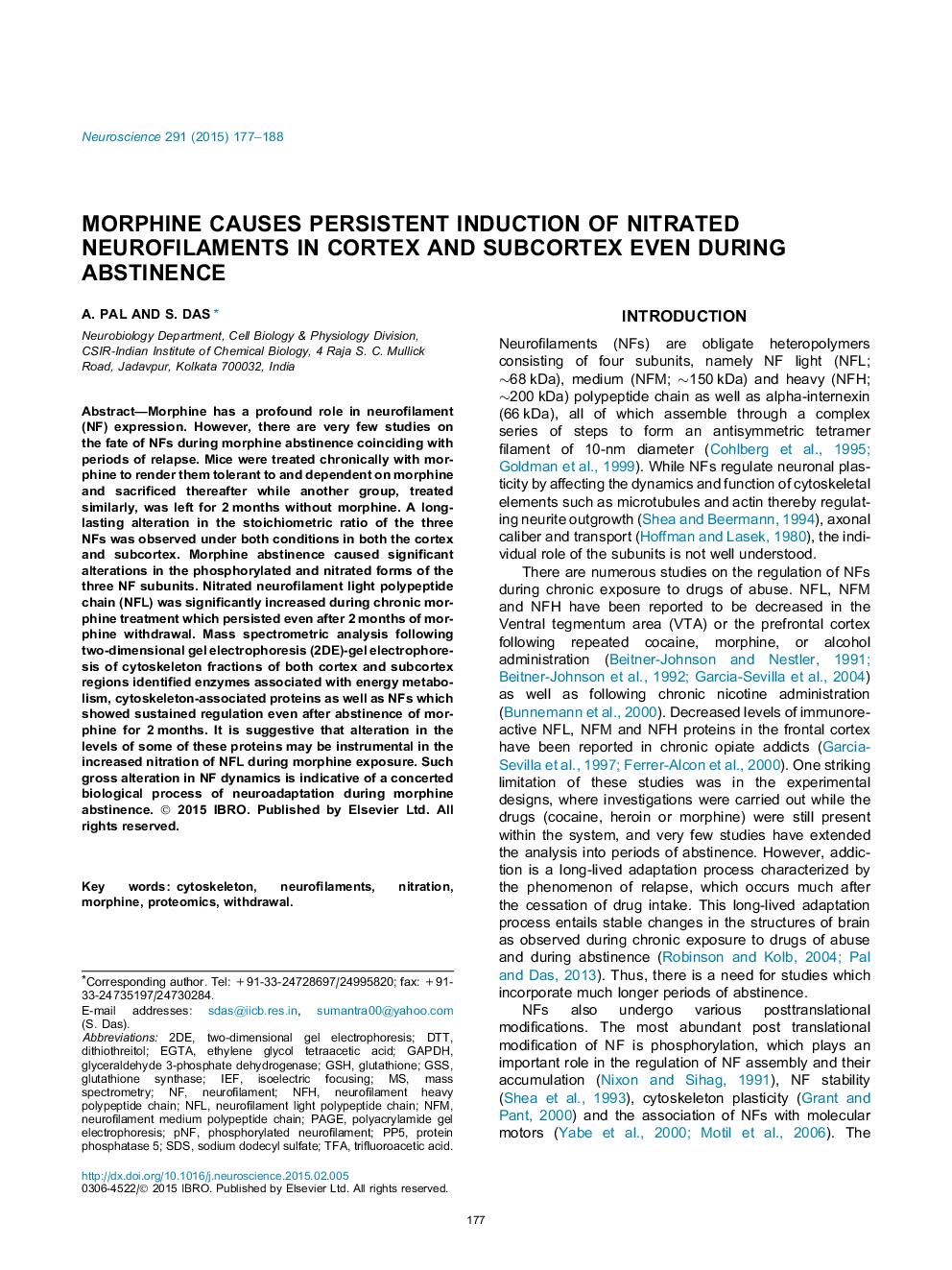| Article ID | Journal | Published Year | Pages | File Type |
|---|---|---|---|---|
| 6272748 | Neuroscience | 2015 | 12 Pages |
â¢Cytoskeletal proteome of the cortex and subcortex were analyzed upon morphine treatment.â¢Both chronic morphine and morphine abstinence altered stoichiometry of neurofilaments.â¢Phosphorylation of neurofilaments also showed persistent alterations during 2 months of morphine withdrawal.â¢Persistent increase of nitrated neurofilament low chain was observed during chronic morphine treatment and abstinence.â¢Proteomics study revealed five proteins; those were consistently altered even after morphine abstinence.
Morphine has a profound role in neurofilament (NF) expression. However, there are very few studies on the fate of NFs during morphine abstinence coinciding with periods of relapse. Mice were treated chronically with morphine to render them tolerant to and dependent on morphine and sacrificed thereafter while another group, treated similarly, was left for 2Â months without morphine. A long-lasting alteration in the stoichiometric ratio of the three NFs was observed under both conditions in both the cortex and subcortex. Morphine abstinence caused significant alterations in the phosphorylated and nitrated forms of the three NF subunits. Nitrated neurofilament light polypeptide chain (NFL) was significantly increased during chronic morphine treatment which persisted even after 2Â months of morphine withdrawal. Mass spectrometric analysis following two-dimensional gel electrophoresis (2DE)-gel electrophoresis of cytoskeleton fractions of both cortex and subcortex regions identified enzymes associated with energy metabolism, cytoskeleton-associated proteins as well as NFs which showed sustained regulation even after abstinence of morphine for 2Â months. It is suggestive that alteration in the levels of some of these proteins may be instrumental in the increased nitration of NFL during morphine exposure. Such gross alteration in NF dynamics is indicative of a concerted biological process of neuroadaptation during morphine abstinence.
